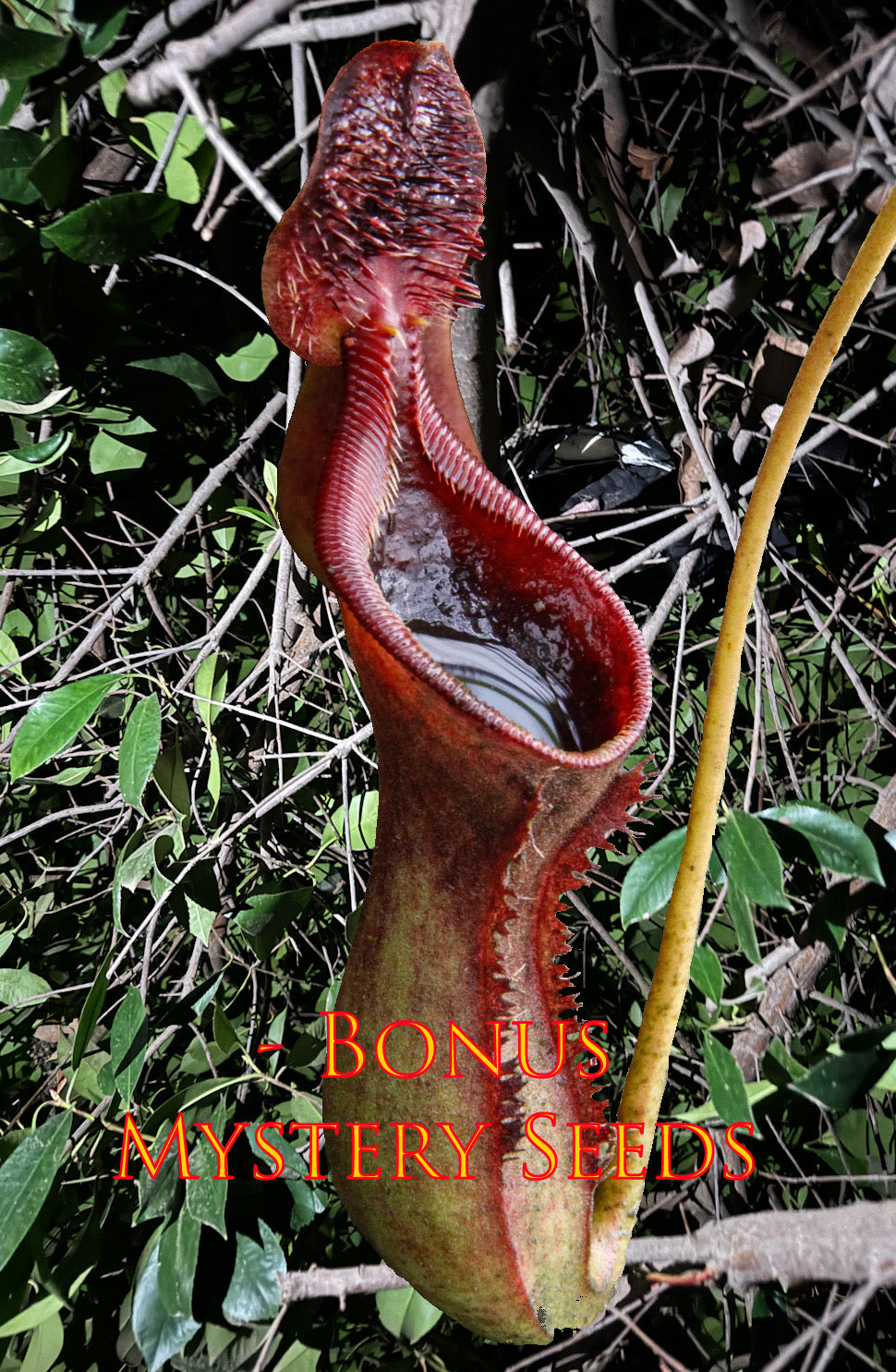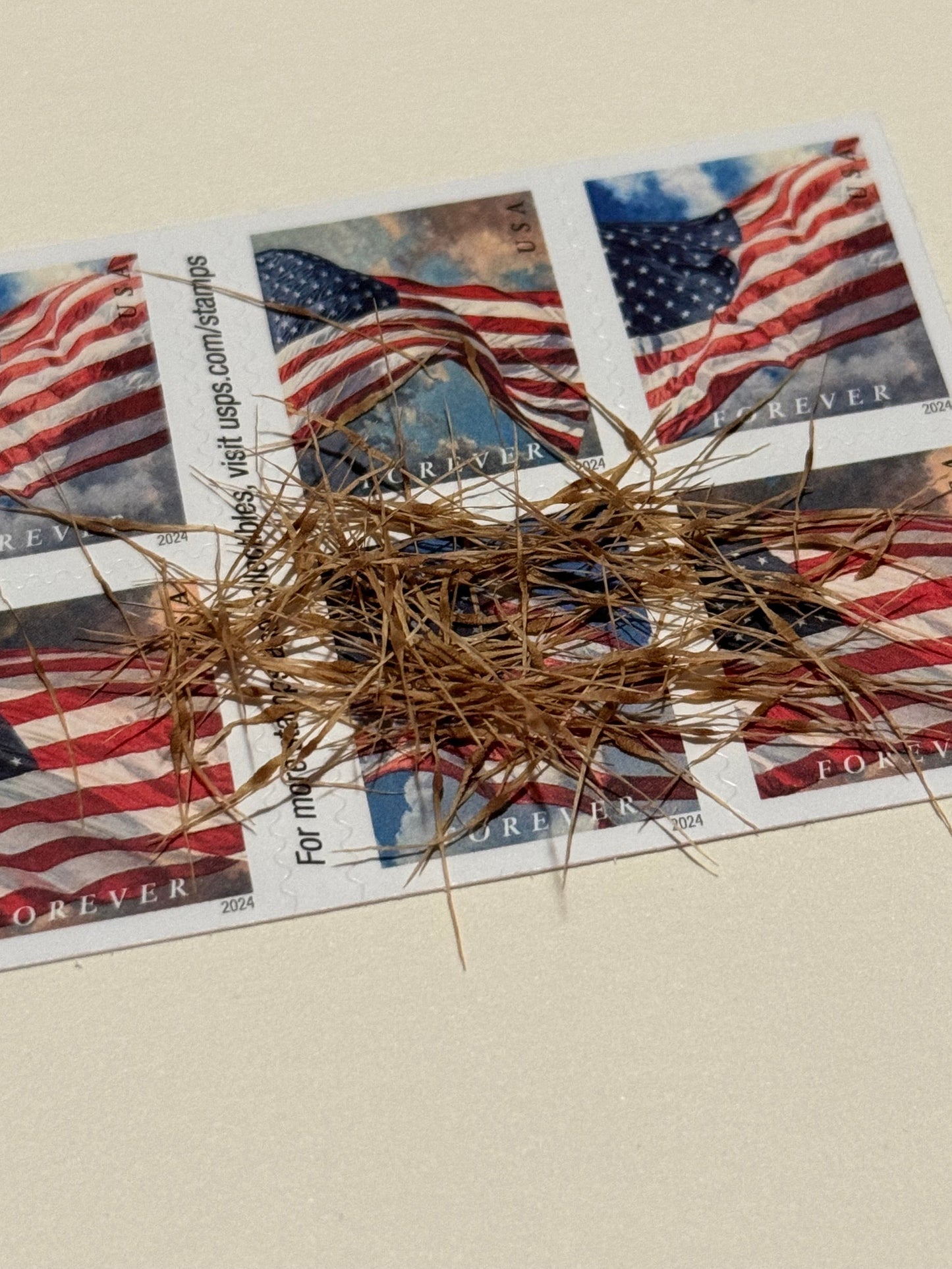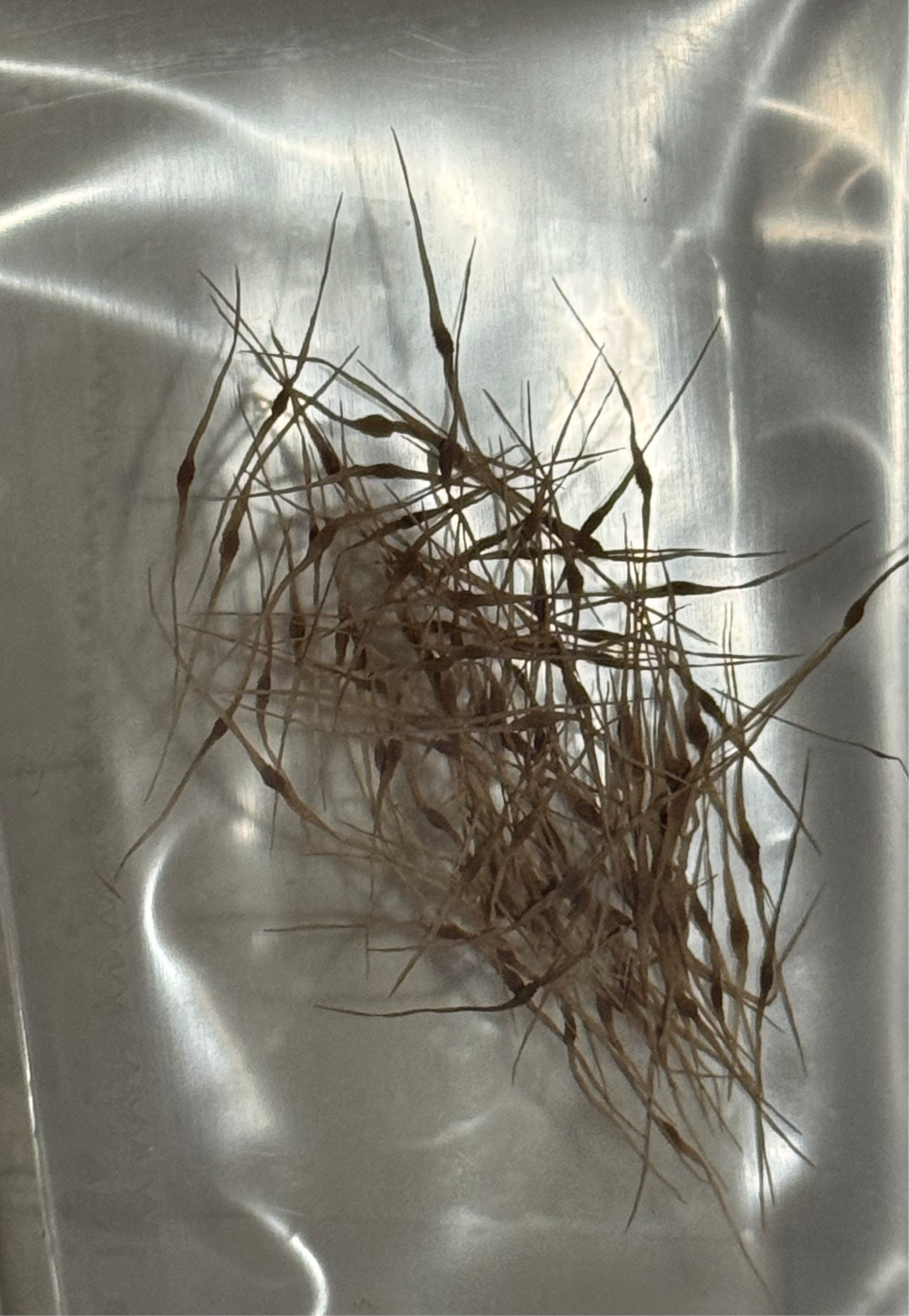1
/
of
3
The Nepenthes Seed Store
100ct Nepenthes Lowii Seeds Freshly Harvested + 20 Free Bonus Seeds
100ct Nepenthes Lowii Seeds Freshly Harvested + 20 Free Bonus Seeds
Regular price
$32.99 USD
Regular price
$49.99 USD
Sale price
$32.99 USD
Unit price
/
per
Couldn't load pickup availability
Contents
- 100 Nepenthes Lowii Seeds
- 20 bonus mystery seeds (Nepenthes only)
Hello welcome to our store, thanks for taking the time to look through our selection below is a care guide for these seeds.
Nepenthes Lowii Care Guide
Key Requirements
- Type: Highland Nepenthes.
- Growth Habit: Epiphytic or terrestrial.
- Temperature: Prefers cooler temperatures with a significant day-night temperature difference.
- Humidity: High humidity is essential, but it tolerates slightly drier conditions compared to some Nepenthes.
1. Environment
Temperature
- Daytime: 20–25°C (68–77°F).
- Nighttime: 10–15°C (50–59°F).
- Temperature drops are critical for its growth as it mimics its natural highland habitat.
Humidity
- Maintain relative humidity of 70–90%.
- While humidity can drop briefly without major harm, prolonged dry conditions should be avoided.
Lighting
- Provide bright, indirect light or filtered sunlight.
- Use full-spectrum grow lights if natural light is insufficient.
- Aim for 12–14 hours of light daily.
Air Circulation
- Good airflow helps prevent fungal infections and encourages healthy growth.
- Use a fan to create gentle air movement, especially in enclosed setups.
2. Potting and Medium
Potting Medium
-
Nepenthes Lowii prefers a light, well-draining, and airy medium.
- Suggested mix:
- 60% long-fiber sphagnum moss
- 20% perlite
- 20% orchid bark or charcoal for aeration
- Suggested mix:
Pot
- Use a pot with good drainage.
- Hanging baskets can mimic its natural epiphytic growth habit.
3. Watering
- Keep the medium consistently moist but not waterlogged.
- Use only distilled, reverse osmosis, or rainwater to avoid mineral buildup.
- Allow excess water to drain completely after watering.
- Avoid letting the plant sit in stagnant water.
4. Feeding
-
Nepenthes Lowii relies on its pitchers for nutrient intake.
- Feed pitchers every 2–4 weeks with:
- Live or freeze-dried insects like fruit flies or crickets (small quantities).
- Optional: Dilute orchid fertilizer (1/4 strength) sprayed lightly on the leaves or soil, but avoid over-fertilizing.
- Feed pitchers every 2–4 weeks with:
- If the plant lacks pitchers, mist the foliage with diluted fertilizer sparingly.
5. Humidity and Watering Routine
- Use a humidity tray or terrarium for consistent moisture.
- Mist the plant regularly with purified water to maintain high humidity.
6. Growth and Maintenance
Pitcher Production
- Pitcher growth depends on consistent humidity, light, and temperature.
- Ensure the environment is stable to encourage pitcher development.
Pruning
- Remove dead leaves and pitchers to prevent mold or pests.
- Use sterilized scissors to avoid introducing infections.
Repotting
- Repot every 2–3 years or if the plant outgrows its container.
- Be gentle with roots, as Nepenthes are sensitive to disturbance.
7. Seasonal Considerations
- During colder months, maintain temperature and humidity levels using grow lights and humidifiers if necessary.
- Avoid exposure to frost or freezing temperatures.
Common Issues and Solutions
Problem: Pitchers are not forming.
- Cause: Low humidity or insufficient light.
- Solution: Increase humidity and provide brighter indirect light.
Problem: Leaves are yellowing or browning.
- Cause: Overwatering, underwatering, or mineral buildup.
- Solution: Adjust watering routine and ensure water quality.
Problem: Mold or pests appear.
- Cause: Poor air circulation or excess moisture.
- Solution: Improve airflow and treat with neem oil or insecticidal soap.
Growth Timeline
- Nepenthes Lowii is a slow grower.
- It may take several years to reach maturity and produce its signature large, elongated upper pitchers with the unique habit of catching detritus and animal droppings in the wild.
With careful attention to these requirements, your Nepenthes Lowii can thrive and develop into a stunning specimen showcasing its unusual and captivating characteristics
Share





